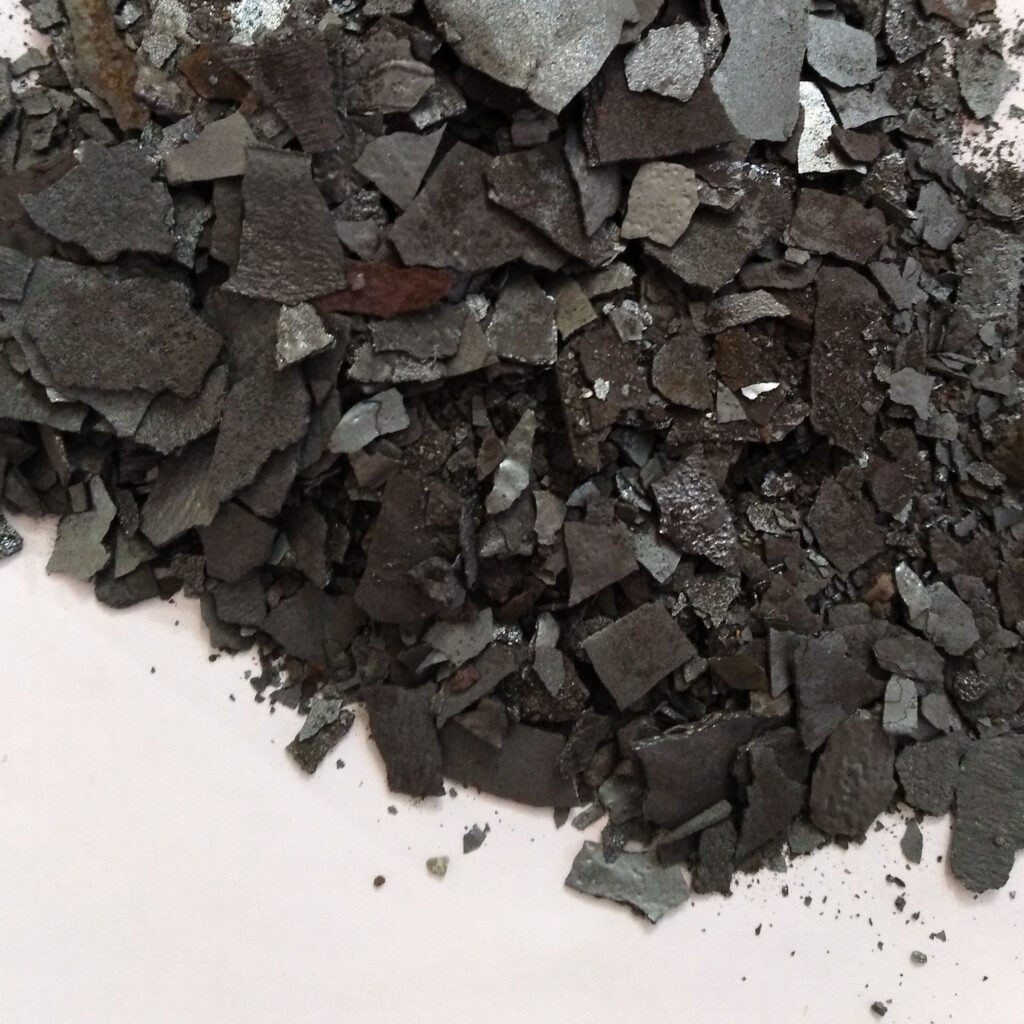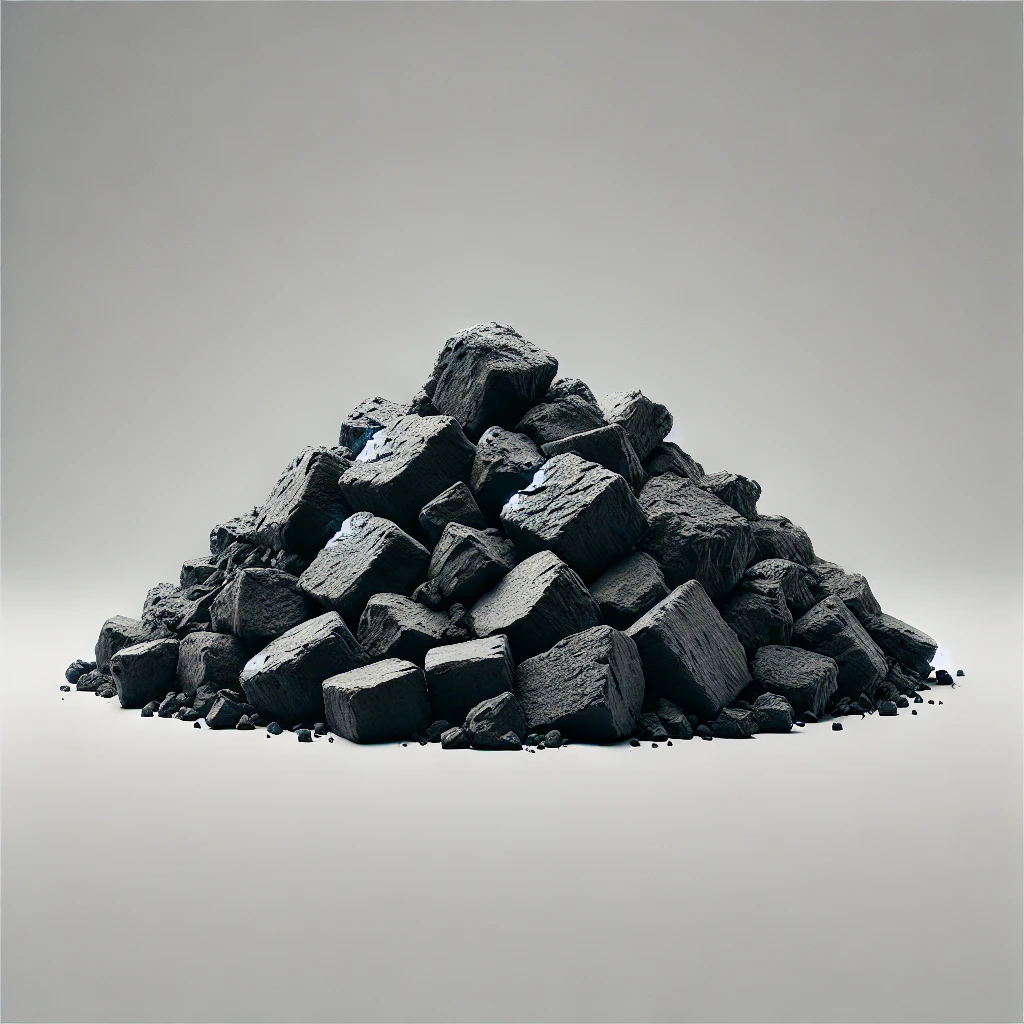Since purchasing and supplying high-quality bitumen as a very important material in industries is of great importance; Mahan Zone has tried to share detailed information about this valuable material with you in this article.
Fortunately, Mahan Zone has the ability to supply bitumen in various quantities to suit your needs and applications. Please stay with us until the end of this article and contact us via the communication channels available on the site to order and buy bitumen.
Bitumen, a viscous, black, sticky substance derived from crude oil or natural deposits, has diverse applications due to its adhesive, waterproofing, and weather-resistant properties. Here are some of the primary applications of bitumen:
1. Road Construction
- Bitumen is widely used as a binding agent in asphalt concrete, making it the primary component for road surfaces, highways, parking lots, and runways. It enhances durability and provides a smooth surface for vehicles.
2. Roofing
- In the construction industry, bitumen is used for waterproofing and insulating roofs. Modified bitumen membranes, such as polymer-modified bitumen, are especially common for flat or low-sloped roofs, providing durability and weather resistance.
3. Waterproofing
- Bitumen is often used for damp-proofing and waterproofing foundations, basements, tunnels, and bridges. It can be applied in sheets or as a liquid coating to prevent water ingress, protecting structures from damage due to moisture.
4. Sealants and Adhesives
- Bitumen-based sealants and adhesives are commonly used to repair cracks and provide bonding for various construction materials. They are particularly effective for bonding stones, tiles, and paving slabs, as well as sealing roofing joints.
5. Protective Coatings
- Bitumen is used as a corrosion-resistant coating for pipes, steel, and other metal structures exposed to moisture and chemicals. This makes it valuable in the oil and gas industry, where pipelines and tanks require protection from rust and wear.
6. Damp-proof Courses (DPC)
- Bitumen is applied in building foundations as a damp-proof course, which acts as a barrier against rising dampness. It helps to protect walls and floors from moisture penetration.
7. Industrial Applications
- Bitumen is also utilized in manufacturing products like car tires and battery casings, where its adhesive and chemical properties are useful. It serves as an insulating material in various electrical applications and as a raw material in some chemical processes.
These applications leverage bitumen’s durability, adhesion, and resistance to water, making it essential across the construction, road infrastructure, and industrial sectors.
In addition to its general uses, bitumen has several specialized applications that leverage its unique properties for specific industrial, environmental, and technological needs. Here are some of these specialized applications:
1. Bitumen Emulsions for Cold Mix Technology
- Bitumen emulsions are used in “cold mix” applications, where the bitumen is dispersed in water to create an emulsion, allowing it to be applied at lower temperatures. This approach is commonly used for road repairs in remote areas, where hot-mix asphalt plants are inaccessible, and it reduces the environmental impact by minimizing energy use.
2. Polymer-Modified Bitumen (PMB)
- Polymer-modified bitumen is produced by adding polymers to enhance its flexibility, elasticity, and temperature resistance. PMBs are used in areas with extreme temperature variations, high traffic loads, and where enhanced performance is required, such as high-speed highways, bridges, airports, and urban roadways.
3. Bituminous Paints and Coatings
- Bituminous paints and coatings are used as protective layers in high-moisture environments or where chemical resistance is essential. They serve as effective coatings for marine structures, dams, pipelines, and industrial equipment, as well as for corrosion protection in sewage treatment plants.
4. Bitumen in Soundproofing and Vibration Dampening
- Bitumen sheets and mats are used in construction and automotive applications for soundproofing and vibration dampening. For example, automotive manufacturers use bitumen sheets to reduce noise levels and dampen vibrations within vehicle cabins, while buildings incorporate bitumen layers in walls and floors for enhanced acoustic insulation.
5. Waterproofing Geomembranes in Landfills
- In landfill construction, bituminous geomembranes are installed as impermeable barriers to contain and manage waste. This application prevents leachate from contaminating soil and groundwater, helping to ensure environmental protection around waste disposal sites.
6. Bitumen in Industrial Oil Sands Processing
- Bitumen is naturally present in oil sands, and specialized processing techniques, including heating and the addition of solvents, are used to extract bitumen from sand and clay. This bitumen can be further refined into synthetic crude oil or used in various heavy-duty industrial applications.
7. Electrical Cable Coating and Insulation
- Bitumen’s insulation properties make it valuable in the coating of electrical cables, particularly in environments exposed to moisture or corrosive chemicals. Bituminous coatings improve insulation and prevent moisture ingress, increasing the longevity of the cables.
8. Anti-Vegetation Solutions for Rail Tracks
- A unique application of bitumen is as an anti-vegetation layer on rail tracks. Bituminous sheets are applied alongside and under rail tracks to prevent plant growth, reducing maintenance needs and protecting the tracks from potential damage caused by roots.
9. Mastic Asphalt for Heavy-Duty Flooring
- Mastic asphalt, a bitumen-rich mixture, is used in heavy-duty flooring for industrial facilities, bridges, and parking decks. It provides a smooth, durable, and chemical-resistant surface that can withstand significant weight, making it ideal for factories, warehouses, and docks.
10. Artificial Reefs and Environmental Applications
- Bitumen is sometimes used in constructing artificial reefs due to its stability and resistance to erosion in seawater. Bituminous materials are used in reef structures to promote marine biodiversity and aid in coastal ecosystem restoration.
Each of these applications makes use of bitumen’s adaptability to diverse and challenging environmental conditions, underscoring its value beyond conventional construction and road-making uses.
Bitumen’s industrial applications extend beyond construction and infrastructure, encompassing several specialized uses where its adhesive, insulating, and protective qualities are crucial. Here are some key industrial applications of bitumen:
1. Automotive Industry
- Soundproofing and Vibration Dampening: Bitumen sheets and mats are applied inside vehicle cabins to reduce road noise and vibration. These bitumen-based products enhance passenger comfort by dampening noise and minimizing vibrations from engines and external sources.
- Underbody Coating: Bitumen is used as an anti-corrosion and anti-abrasion coating for vehicle underbodies. This protects metal components from water, salt, and dirt, extending vehicle lifespan and reducing maintenance.
2. Battery Manufacturing
- Battery Casing Sealant: Bitumen acts as a sealant for certain types of battery casings (like lead-acid batteries), where it helps prevent leaks, corrosion, and contact with moisture. Bitumen’s insulating and sealing properties make it ideal for containing acidic compounds and protecting against external damage.
3. Pipe and Tank Coating
- Corrosion Protection: Bitumen coatings are applied on steel pipes, tanks, and other metallic equipment to protect them from rust, chemical exposure, and moisture. This is particularly valuable in the oil and gas industry, where bitumen coatings on pipelines and tanks increase their durability, even in harsh environments.
- Thermal Insulation: Some bituminous materials serve as thermal insulators, reducing energy loss in industrial processes that involve extreme temperatures. Bitumen coatings help retain heat, making them effective in industrial storage tanks and pipelines.
4. Electrical Insulation
- Cable Sheathing: Bitumen’s electrical insulation properties are utilized in cable sheathing, especially for underground cables exposed to moisture. It protects cables from wear and environmental damage, improving their longevity and resistance to short circuits.
- High-Voltage Applications: In high-voltage applications, bitumen-based insulating materials help prevent electrical discharge and ensure the stability of transmission systems.
5. Industrial Flooring and Heavy-Duty Surfaces
- Mastic Asphalt Flooring: Industrial facilities with heavy machinery, such as factories and warehouses, often require durable, chemical-resistant flooring. Mastic asphalt, rich in bitumen, provides a smooth, resilient surface that can withstand heavy loads, chemical spills, and temperature variations.
- Bridge Decks and Parking Decks: Bitumen-based mastic asphalt is also used in bridge decks and parking structures where heavy traffic requires highly durable, weather-resistant flooring solutions.
6. Anti-Corrosion Coatings for Maritime Applications
- Marine Infrastructure Protection: Bitumen is applied as a protective coating on piers, docks, and other marine infrastructure to shield against the corrosive effects of saltwater. Its durability in harsh marine environments makes it valuable for port and coastal structures.
- Shipbuilding: Bituminous coatings are also used to protect the hulls of ships and other metal surfaces exposed to seawater, offering an economical, long-lasting alternative to more specialized marine paints.
7. Adhesives and Sealants in Manufacturing
- Plywood and Veneer Production: Bitumen-based adhesives are used in the production of plywood, veneer, and particle board. They provide strong bonding between layers, adding waterproofing and improving overall durability.
- Rubber and Plastic Manufacturing: Bitumen is used as a binding material in certain rubber and plastic products, where it enhances flexibility, bonding strength, and water resistance. This application is common in rubber flooring, mats, and some types of flexible piping.
8. Railway Applications
- Ballast Stabilization and Anti-Vegetation Layers: Bitumen is applied under railway tracks to stabilize ballast and reduce plant growth. This prevents track distortion and reduces maintenance, making railway systems safer and more efficient.
- Rail Sleeper Coatings: Bitumen coatings protect rail sleepers (ties) from moisture and degradation. This is particularly useful for wooden or concrete sleepers in humid environments, where bitumen helps extend their service life.
9. Bitumen in Oil and Gas Extraction
- Oil Sands Processing: In areas rich in oil sands, bitumen is extracted through a series of heating and separation techniques. This raw bitumen is then upgraded to synthetic crude oil or used in energy-intensive industries.
- Heavy-Duty Lubricants: Bitumen derivatives are used as heavy-duty lubricants and protective agents for equipment exposed to high pressure and friction. These bituminous lubricants can withstand extreme conditions, making them valuable in mining and oil extraction equipment.
10. Fireproofing and Heat-Resistant Applications
- Fire-Resistant Coatings: Certain modified bitumen products are designed to be fire-resistant and are used as coatings on equipment, structures, and building components to reduce fire risk. They can delay heat penetration and help control fire spread.
- Heat-Resistant Paints: Bitumen-based heat-resistant paints are applied to industrial equipment and surfaces exposed to high temperatures, such as boilers, furnaces, and kilns, providing thermal insulation and protecting against heat-induced damage.
Bitumen’s versatility makes it a valuable material in numerous industrial processes, where its protective, insulating, and adhesive qualities enhance performance and durability across a variety of applications.






